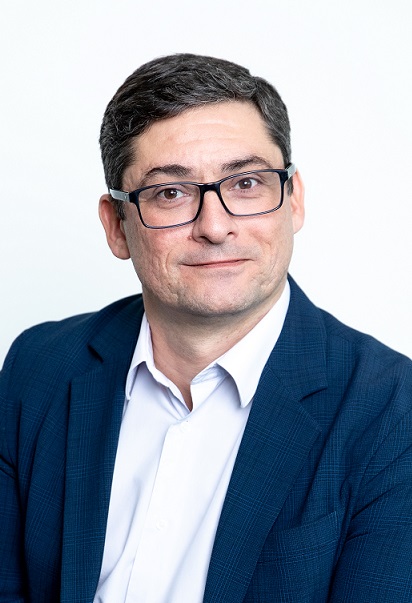Marcelo Solomão, Vice President of Customer Technology Services, Accor Group South America, explains how the company has advanced technologically to improve the guest experience.

Where does the hotel guest experience begin and end? Usually, the experience begins at a computer or mobile screen. And for it to be positive, more and more advances are needed, as well as a better understanding of what customers want and why millions of people in Latin America and around the world use hotel services.
It is what the Accor hotel group has been working on successfully.
Accor stands out as one of the fastest-growing and expanding companies in the hotel industry in recent years, with brands and services focused on diverse guest profiles.
Accor has opened 288 hotels and resorts, adding 41,000 rooms to the market by 2021. It brings the Accor global network to more than 5,300 hotels, 778,000 rooms and 1,200 properties, and there are still 214,000 rooms in the pipeline.
Accor’s global development, design and technical services teams achieved a 3% growth rate in 2021, with more openings and brands than any global competitor in its main historical markets.
The positive performance in 2021 was especially striking in Europe, China and the Middle East, as the group experienced a record year in North and Central America.
In Latin America, the company operates in Argentina, Uruguay, Chile, Brazil and Peru and recently opened new hotels in Medellin and Colombia. The brand has about 100 hotels and 13,200 rooms in the region.
An invaluable experience
To this growth, technology has become a fundamental tool. It is because it provides much more than just data and knowledge to help manage a business that demands satisfaction from its guests as they rest in their rooms or work in various spaces such as restaurants, convention centers, co-working offices and others that arise following the demands of the market.
That is why we wanted to know first-hand how a hotel technology ecosystem as diverse and broad as this is managed and turned to Marcelo Salomão, Accor Group’s Vice President of Customer Technology Services in South America.
With over 26 years of experience, the last 21 of which have been in the hotel market, Marcelo Salomão has a degree in software development from the Pontifical Catholic University of Rio de Janeiro and computer networks from Estácio de Sá University.
In 2019, he began his career at Accor as head of the technology area for South America, with the principal goal of expanding the department’s activity in the countries of Latin America, aiming to get closer to the hotels and facilitating technological innovation in the hotel group’s properties.
His journey through IT for the hotel industry allows us to understand the path hotels in Latin America must follow to increase quality indicators, especially in customer experience, which is a vital issue for this business.
What are the priorities for Accor in Latin America?
It is maintaining cybersecurity, investing in updating equipment in hotels and migrating our solutions to the cloud.
How has IT management evolved in a hotel company the size of Accor?
The strategy is to take our solutions to a cloud environment. We are migrating the Property Management System (PMS) and the Point of Sale (POS) of our hotels to the cloud, and the plan is to follow the same path with other systems in the coming years. We expect to be in the cloud with 75% of the hotels by 2025.
How does the IT arena adapt to improve the customer experience both before, during and after hotel stays?
We are investing in solutions to anticipate the acquisition of personal information before online check-in to reduce bureaucracy. Today there are QR code menu solutions for guests to consume hotel services through an online platform. For example, it is possible to request room service through a QR Code fully integrated into the hotel management system, providing agility in response and less work for our operational staff.
We are also implementing solutions through Whatsapp so guests can communicate faster with different areas within the hotel and thus be better assisted.
What has changed in the IT infrastructure in recent years to solve connectivity issues and new services for guests and hotel staff?
Guest demand in terms of technology has evolved, and hotel infrastructure must advance to meet this demand. Therefore, investments are necessary. So, we have a specific plan for each property to reach this demand with the least possible investment.
The focus is on equipment such as computers, phones and Wi-fi infrastructure. With cloud migration planning, the hotels’ infrastructure becomes simpler, so we can focus or invest in what actually benefits the guest.
How has the cloud impacted Accor’s hotel business?
It is not correct to think of a hotel with the same equipment and systems located internally as in previous years. The cost of keeping this up-to-date is high but the risk is even higher. That is why an extensive effort is needed when migrating to the cloud.
How are you applying process automation and Artificial Intelligence to improve the business?
It is a new aspect in the hospitality industry that is evolving very well. We have projects underway to automate finance, accounting and night audit processes – that is conference processes that do not necessarily have to be done by one person
What other innovations in the region’s hotel sector do you think we will see in the rest of this decade?
We are hoping for solutions for ‘mirroring’ equipment on TVs, such as Chromecast and digital key. But I believe that when 5G becomes a reality in South America, we will have the Internet of Things (IoT) coming to our market in a financially accessible way.
Click below to share this article

